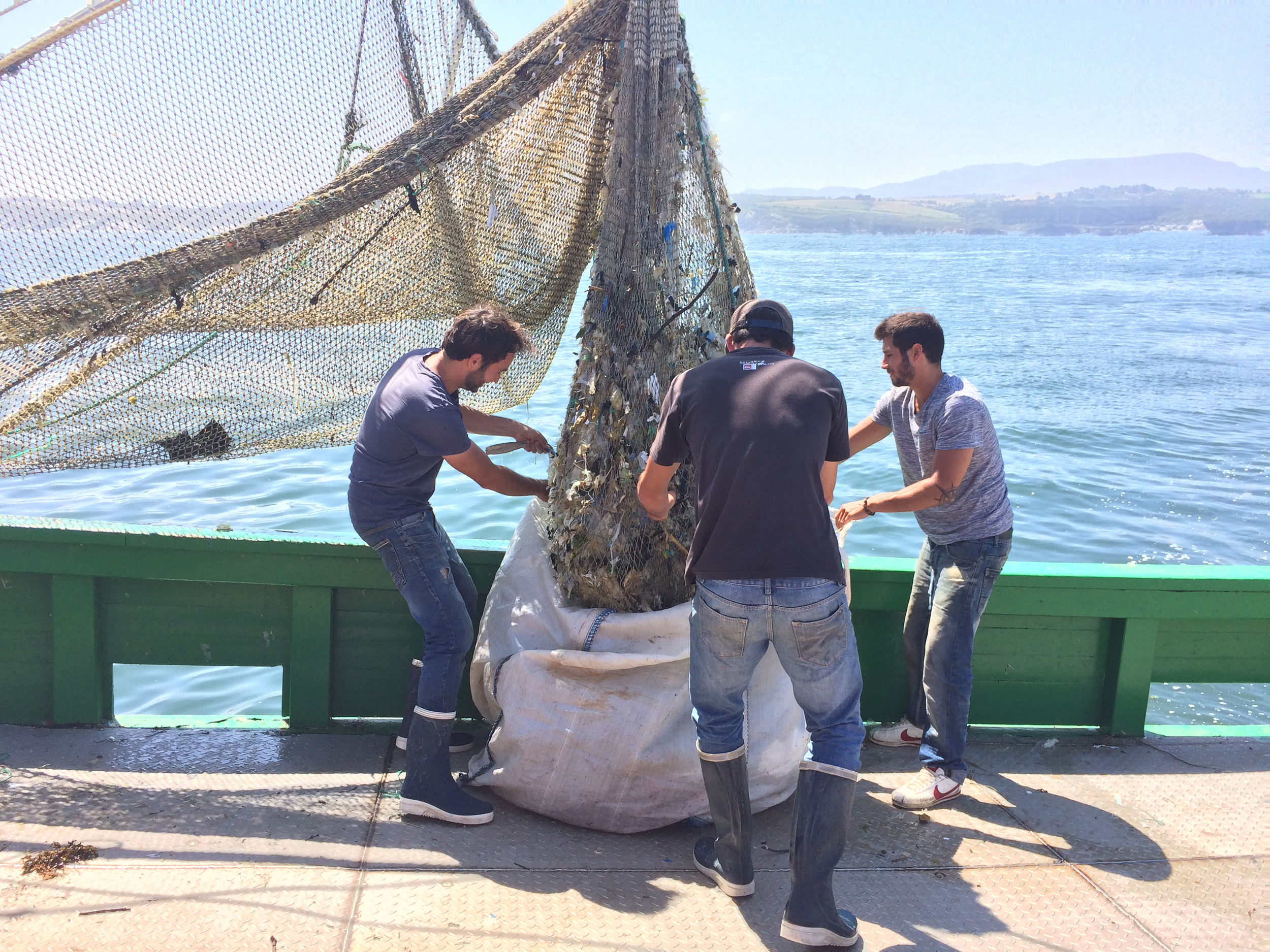Plastics, among other marine litter, are considered by the European Union and other organizations to be one of the main threats to the oceans, not only because of their environmental impact but also because of the negative economic effect they can have on coastal regions.
Just an example: it is estimated that 10 million tonnes of waste end up in the sea every year.
The little research that exists on the abundance of plastics in the waters of the Bay of Biscay focuses mainly on the open sea, while information on the coastal zone is still limited. To fill this gap, the AZTI technology centre has led a four-year research project to define the spatial distribution of marine litter in the Bay of Biscay, focusing on the analysis of microplastics, the study of river environments, floating waste, waste production by sector, biodegradation processes and aquaculture and fishing.
Large accumulation of microplastics
The results obtained by AZTI's scientific team place this oceanographic area of the Bay of Biscay as a "dead end" for microplastics. In this sense, microplastics (particles smaller than 5 mm) represent 93% of the amount of plastic present in the samples analysed (28% by weight), mesoplastics (particles between 5 mm and 25 mm in size) 7% (26%) and macroplastics 1% (46%).
The average abundance of plastic found was between 739,395 and 2,625,271 plastic pieces per km2 (equivalent to 998 and 4338 grams per km2).
In addition, the data conclude that French waters have more plastics, with an abundance five times higher than that of the Spanish coasts.
"This study shows that the southeast of the Bay of Biscay is a plastic hotspot with levels in coastal waters similar to those of the Mediterranean Sea or other areas of rubbish aggregation", concludes Oihane Cabezas, AZTI's marine litter expert.
Fisheries sector involved in the solution
The study has counted on the collaboration of the Miren Argia and Itsas Belhara fishing boats to carry out the sample collection campaigns in the coastal waters of the south-eastern Gulf, both in France and in the Basque Country.
The research has been led by AZTI scientific staff and has also involved the collaboration of specialists from the University Institute of Marine Research (INMAR) in Cadiz and the University of Siena (Italy). The project has been partially funded by the European projects LIFE LEMA and JERICO S3 of the Horizon 2020 research and innovation programme, and co-financed by the Basque Government, which in turn has promoted new studies to continue researching and raising awareness in society.
About AZTI
AZTI (www.azti.es) is a science and technology centre specialising in the marine environment and food that develops high-impact transformation projects with organisations aligned with the following Sustainable Development Goals (SDGs) adopted by the UN. Our purpose is to drive positive change for the future of humankind, contributing to a healthy, sustainable and fair society. We provide cutting-edge, value-added products and technologies grounded in sound science and research.
With a 40-year-track-record, AZTI is present in 45 countries, has three headquarters in the Basque Country, and has a team of more than 290 employees. Its extensive performance history is backed by more than 1,500 indexed publications and its excellence is based on its research staff, 60% of whom hold PhDs.
AZTI is a member of the Basque Research and Technology Alliance (BRTA), an initiative that brings together four collaborative research and 12 technology centres, seeking to promote collaboration among them; strengthen the conditions to generate and transfer knowledge to companies, contributing to their competitiveness; and to spread the Basque scientific and technological capacity.



